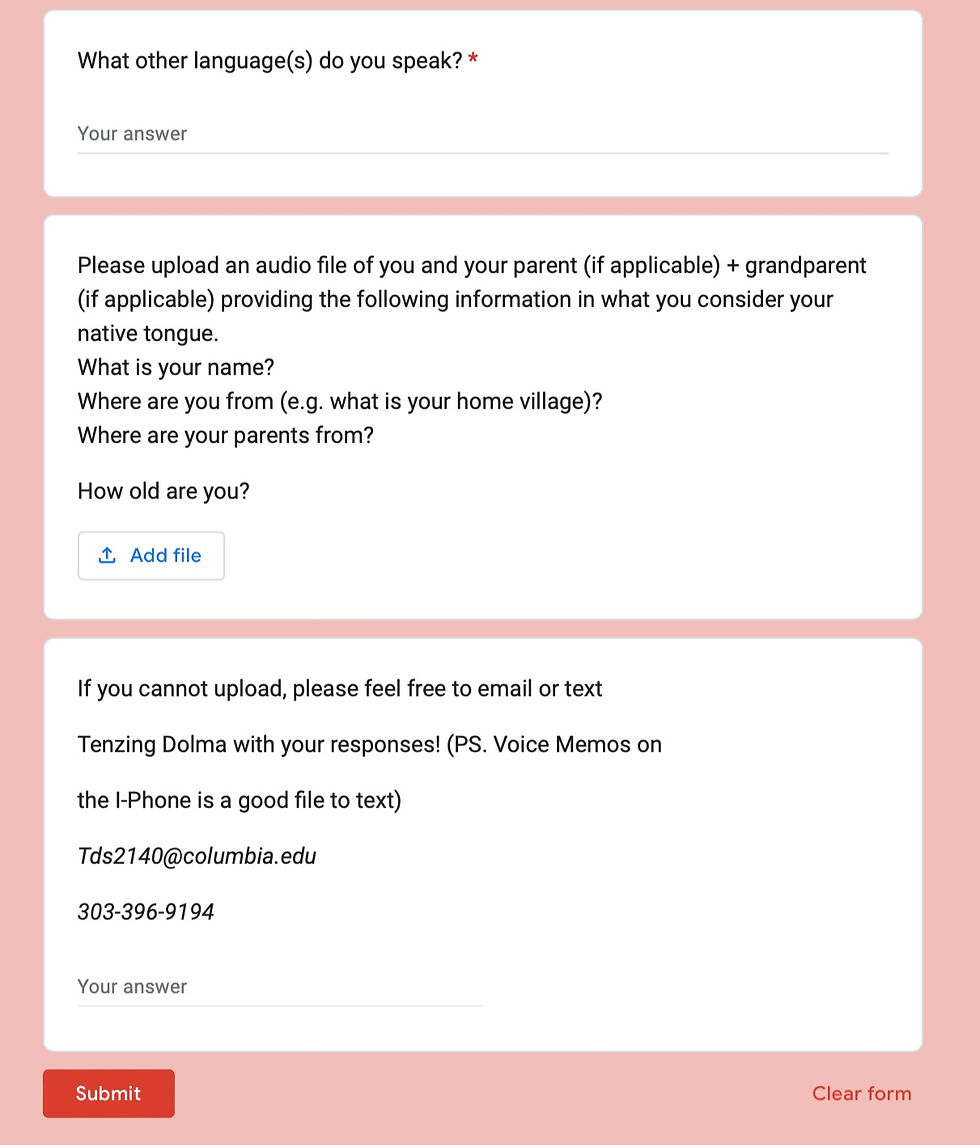Research Layout
- tds2140
- Dec 19, 2022
- 2 min read
In order to conduct our research, we decided to utilize participant data through Google Forms as a means to connect and access audio files.
We worked to carefully craft each question to create un-biased inquiry and to reduce as many limitations and invalidity for this qualitative-based project.

Questions in Order
What languages(s) do you use with your elders as home? (Grandparents, Great-Grandparents, Uncles, Aunts, Parents) (Include dialect if applicable)
- We wanted to be inclusive of a variety of things in this question. The first was an observation of social hierarchy within the family, noting that the expression of respect can be communicated through tone and dialect. We also wanted to recognize if there would be a shift in dialect when speaking with elders.

2) What language(s) do you use when you are speaking to your siblings, friends, and people younger than you? (Include dialect if applicable)
- Similar to our former question, we wanted to observe any commonalities through age.
3) What language(s) do you consider to be your native tongue? (Include dialect if applicable)
- We wanted to assess the self-perception in this question of one's native dialect to account for any differences in question one and two.
4) What other language(s) do you speak?
- For an interesting perspective on language standardization, we recognize that we used English ad our standard form of communication in this project. Therefore, in order to account for other standardized forms of learned language that students/ subject have encountered, we were interesting in the observations of whether language learning outside of the Tibetic-language branch had any over-arching impact.
5) Upload an audio file of you and your parent(if applicable) + Grandparent (if applicable) providing the following information in what you consider your native tongue.
- For our audio collection section we requested participants to upload via drive or to directly message one of the researchers directly. We have highlighted three audios in this module which can be located on out tab "research".


Comments